by Zamir Aiylchyev, guest researcher at Charles University, Prague, from the Anti-Corruption Business Council under the President of the Kyrgyz Republic.

From March 5 to June 2, 2025, I participated in a research secondment at the Institute of International Studies (IMS), Faculty of Social Sciences, Charles University in Prague, Czech Republic. This visit was conducted under the framework of the MOCCA project and supported by Lund University. The primary goal of the secondment was to examine the anti-corruption systems and strategies employed in post-socialist countries, with a particular focus on the Baltic States (Estonia, Latvia, Lithuania). Additionally, the study aimed to analyze effective practices in corruption prevention and anti-corruption initiatives in Central and Eastern Europe, with the goal of identifying practical approaches to adapt and implement these experiences in Kyrgyzstan. The Czech Republic serves as a notable example of a successful transition from socialist governance to a democratic system, culminating in its accession to the European Union. During this transition period, the country significantly enhanced the rule of law, increased governmental transparency, and reduced corruption levels. Similarly, Estonia, Latvia, and Lithuania, which joined the EU in 2004, have made substantial advancements by strengthening transparency in governance, reinforcing legal frameworks, consolidating democratic institutions, and digitalizing public administration. These reforms were primarily driven by strong domestic political will and bolstered by technical and financial support from the European Union.This research holds particular relevance for Kyrgyzstan, which initiated comprehensive governance reforms following the political events of October 2020. Under the leadership of President Sadyr Japarov, the Anti-Corruption Business Council under the President of the Kyrgyz Republic was established in 2021. Subsequently, the National Anti-Corruption Strategy for 2025–2030 was adopted, aiming to provide a systematic and sustainable framework for both the prevention and combatting of corruption. Furthermore, enhanced political commitment and increased transparency across all levels of government have significantly strengthened anti-corruption efforts in the country.
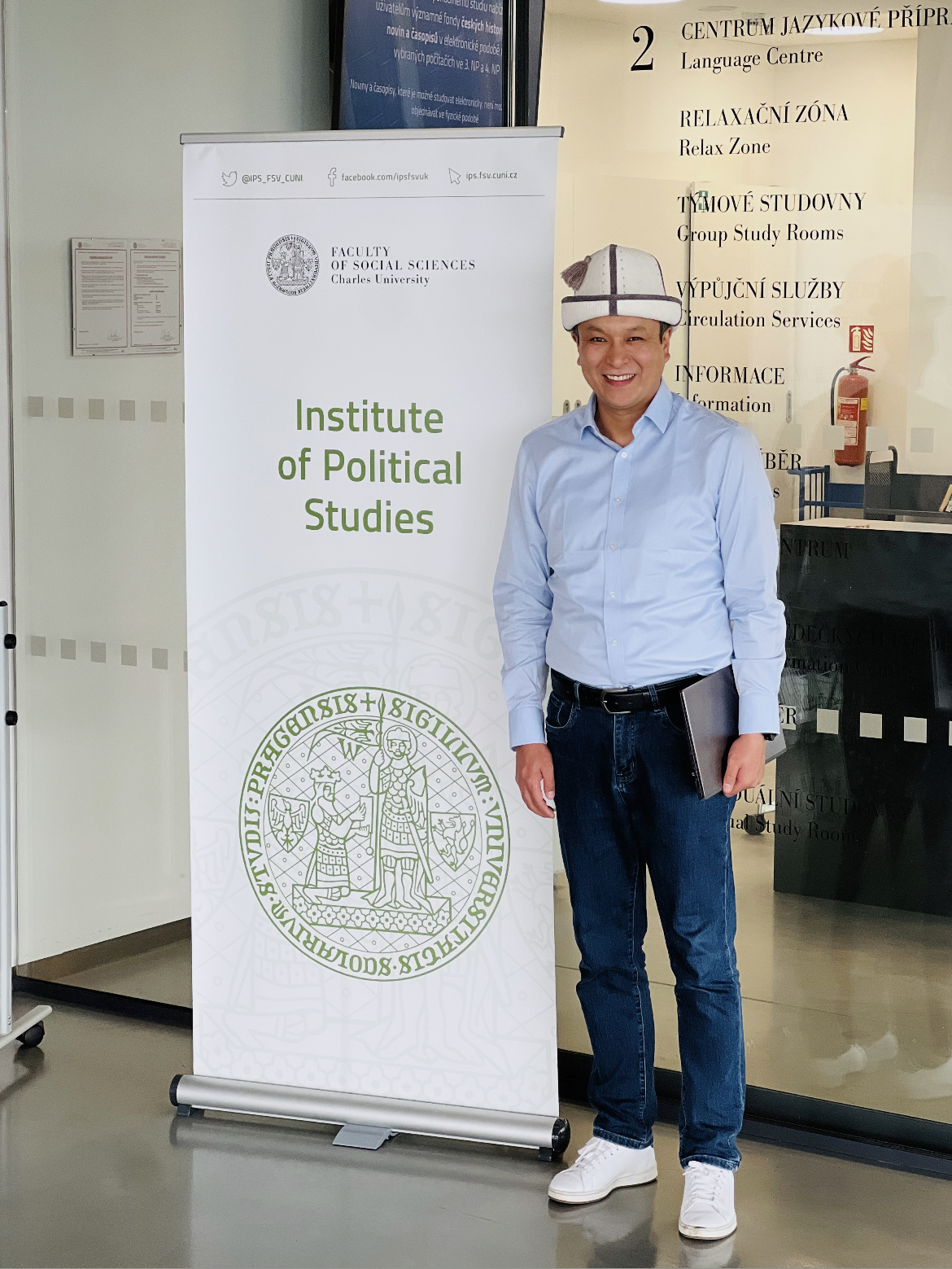
During my stay at Charles University, I actively participated in a series of academic lectures and panel discussions held at the Jinonice Campus. These events involved ambassadors, diplomats, policy experts, and scholars, offering valuable insights into contemporary political and diplomatic issues. Among the key academic engagements I attended were “Debating German Politics” with His Excellency Andreas Künne on April 2, 2025; Career Day for International Students and Graduates on April 9; “100 Days of the Trump Administration” on April 24; Dr. Margarete Klein’s lecture on Russian military developments and Germany’s Zeitenwende policy shift on April 28; Professor Michael’s lecture on climate-responsive curricula in education on May 6; the MOCCA Mid-Term Conference on corruption in non-Western societies held online from May 6 to 8; and Matt Field’s lecture on modern diplomacy and UK–Czech relations on May 19, 2025. These experiences greatly enriched my understanding of international relations, governance challenges, and contemporary policy debates, complementing my anti-corruption research.
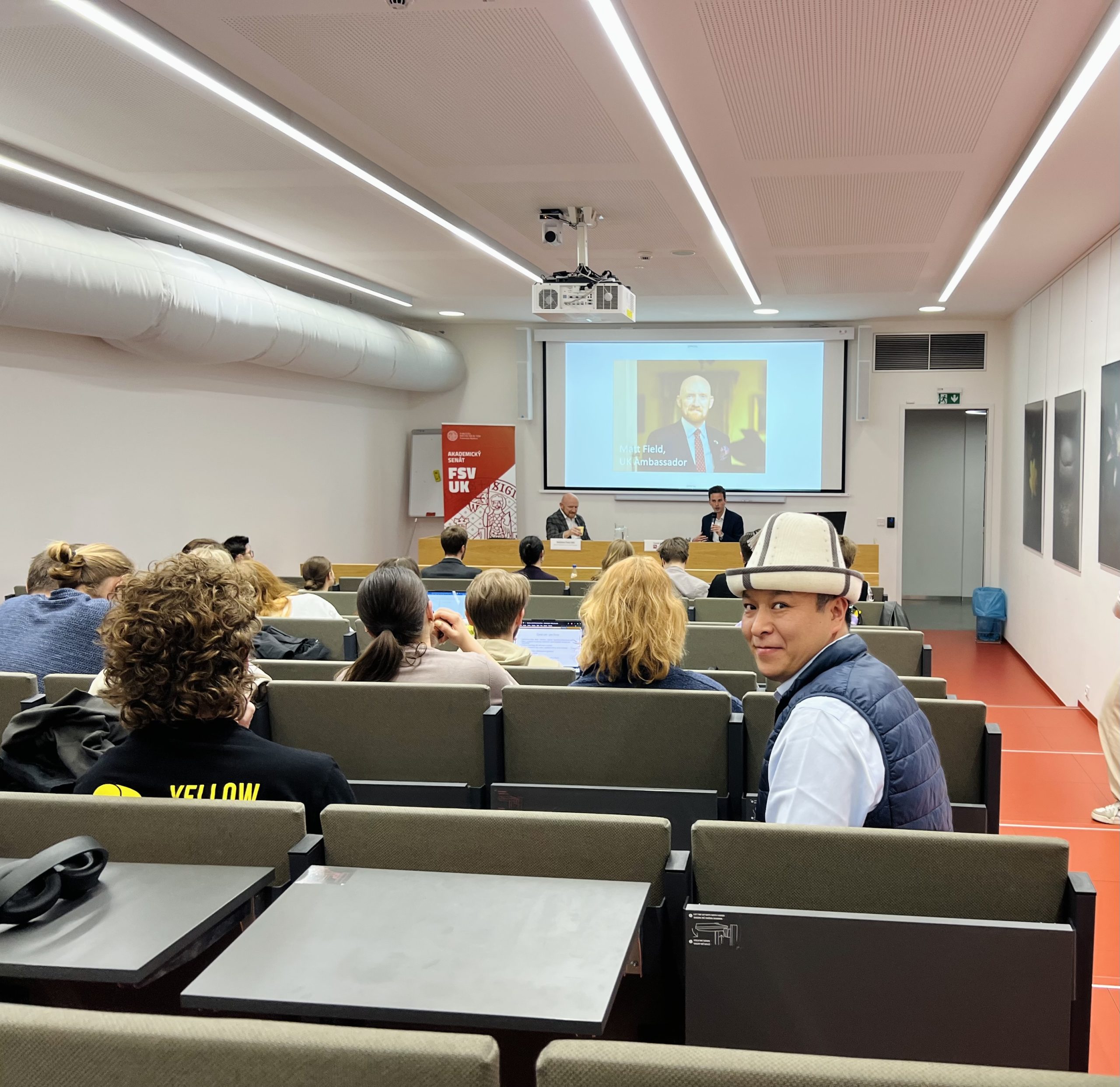
This study undertook a detailed examination of anti-corruption strategies and reforms implemented across post-socialist countries, with a comparative focus on Kyrgyzstan’s legislative framework and implementation practices. Empirical evidence underscores that robust political will constitutes a critical determinant for the successful enactment of anti-corruption reforms. Exemplified by Estonia, Latvia, Lithuania, and the Czech Republic, decisive political leadership has been instrumental in driving reform agendas forward. Correspondingly, Kyrgyzstan’s current reform trajectory highlights the essential role of presidential commitment in advancing anti-corruption measures.
Institutional independence and effectiveness are essential conditions for achieving lasting reform results. The Baltic States serve as examples of successful autonomous and professionally managed anti-corruption agencies. Although Kyrgyzstan has begun efforts to strengthen institutional independence, additional legal and financial measures are needed to ensure full operational autonomy. Digital governance plays a key role in reducing corruption risks. Estonia’s nearly complete digitalization of public services, covering over 99%, sets a high standard, supported by Latvia’s and Lithuania’s robust digital systems. Kyrgyzstan’s introduction of the “Tunduk” platform and ongoing digital reforms show potential to improve transparency and administrative efficiency. Additionally, the Czech Republic’s law on illicit enrichment requires public officials to prove the legal origin of their assets, offering a strong legal tool for accountability and asset recovery. Implementing a similar law in Kyrgyzstan could significantly strengthen its anti-corruption framework. According to Transparency International’s 2024 Corruption Perceptions Index, Estonia scored 76 points (13th globally), Lithuania 63 (32nd), Latvia 59 (38th), and the Czech Republic 56 (46th), whereas Kyrgyzstan scored only 25 points, ranking 146th out of 180 countries. This gap clearly indicates the urgent need for Kyrgyzstan to accelerate its anti-corruption reforms. Finally, Kyrgyzstan’s steady economic growth—with real GDP increasing by 9.0% in 2024 and maintaining rates above 8% for three consecutive years (World Bank, 2024)—demonstrates the positive link between good governance reforms and economic development.
Our host institution, Charles University, founded in 1348, is one of the oldest and most prestigious higher education institutions in Central Europe. Within it, the Institute of International Studies (IMS), established in 1994, is recognized as a leading center for research and education in international relations, regional studies, and political science. The Institute offers academic programs at various levels, including a Bachelor’s degree in Central European Studies, covering history, culture, and politics; a Master’s degree in Geopolitical Studies and Balkan and Central European Studies; and a Doctorate in International Area Studies. IMS maintains active cooperation with international partners such as Erasmus+ and NATO academic programs. Its alumni include prominent figures in diplomacy, public administration, and academia, such as Mikulas Bek, former Minister for European Affairs; Petr Drulak, former Czech Ambassador to France and noted political scientist; Jakub Dvoracek, State Secretary at the Czech Ministry of Health; Pavel Barsa, philosopher and public intellectual; and Jan Kren, historian and founder of IMS.
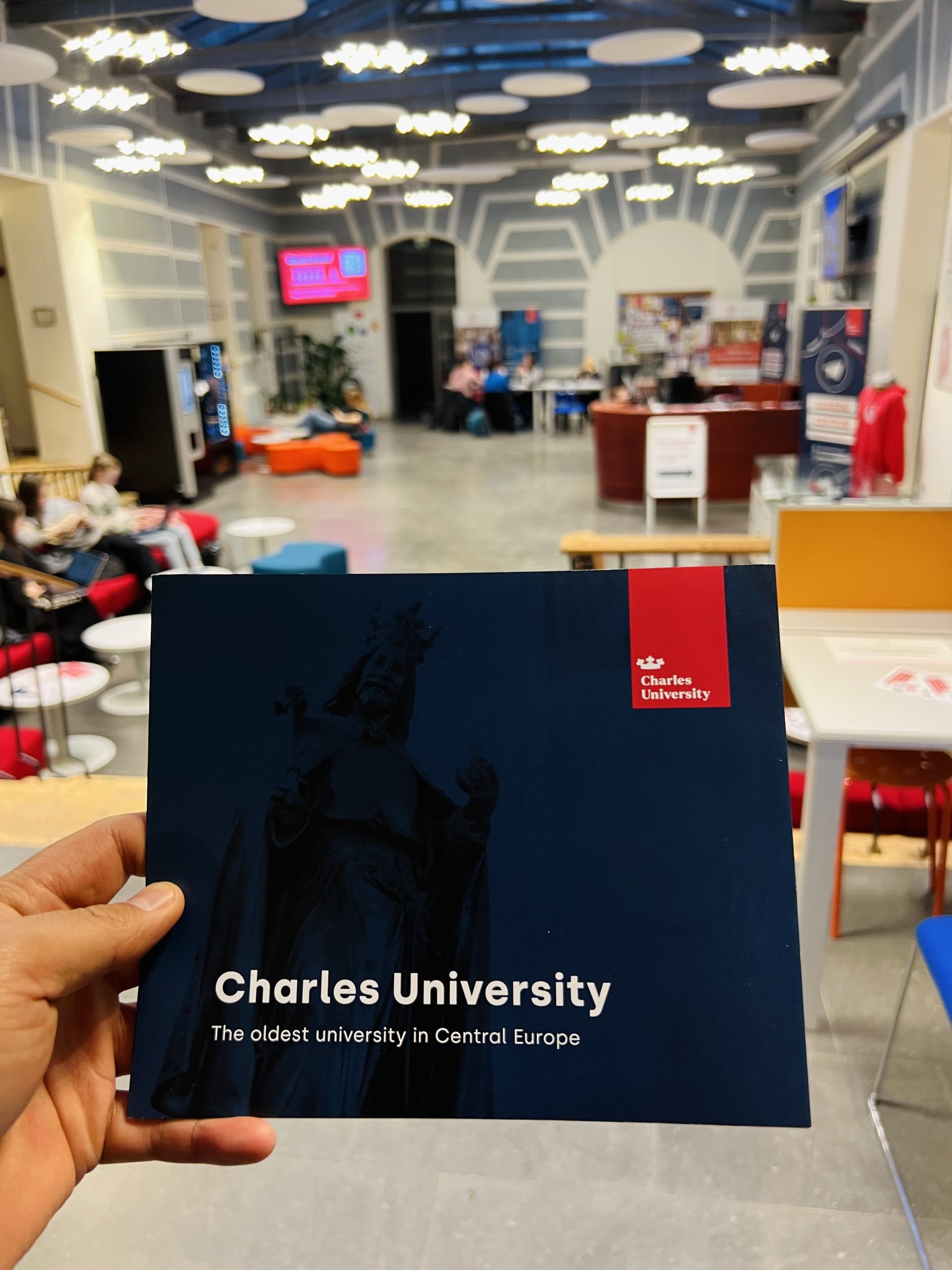
Prague, situated in the geographic and cultural heart of Europe, is distinguished by its extensive historical heritage, diverse architectural styles, and dynamic cultural environment. The city, located along the Vltava River, presents a rich amalgamation of Gothic, Baroque, Romantic, and Art Nouveau architectural traditions, establishing itself as a prominent European hub for culture, science, and intellectual activity. During my stay, I found Prague to offer a high quality of life, characterized by a temperate climate conducive to adaptation. Daily commuting to the university was facilitated by an efficient, reliable, and clean metro system, which accommodates nearly one million passengers daily. Recognized as a UNESCO World Heritage site, Prague features numerous notable landmarks, including Prague Castle one of the largest medieval castles worldwide and the historic seat of Czech monarchs and presidents and the 14th-century Charles Bridge, whose architectural significance and historical value were particularly noteworthy. The city’s historic center is among the most well-preserved medieval urban areas in Europe, encompassing a range of architectural styles from Gothic to Modernism, with key sites such as the Old Town and Lesser Town. The availability of extensive green spaces and parks contributes to a tranquil and secure urban environment, thereby enhancing the overall quality of life. Additionally, the local cuisine, noted for its freshness and quality, especially in the natural flavors of regional fruits and vegetables, was a distinctive aspect of the cultural experience. In summary, Prague’s distinctive fusion of historical, cultural, and environmental elements offers a compelling and enduring scholarly environment. As such, it represents an exemplary setting for academics, students, and researchers engaged in comprehensive interdisciplinary studies.
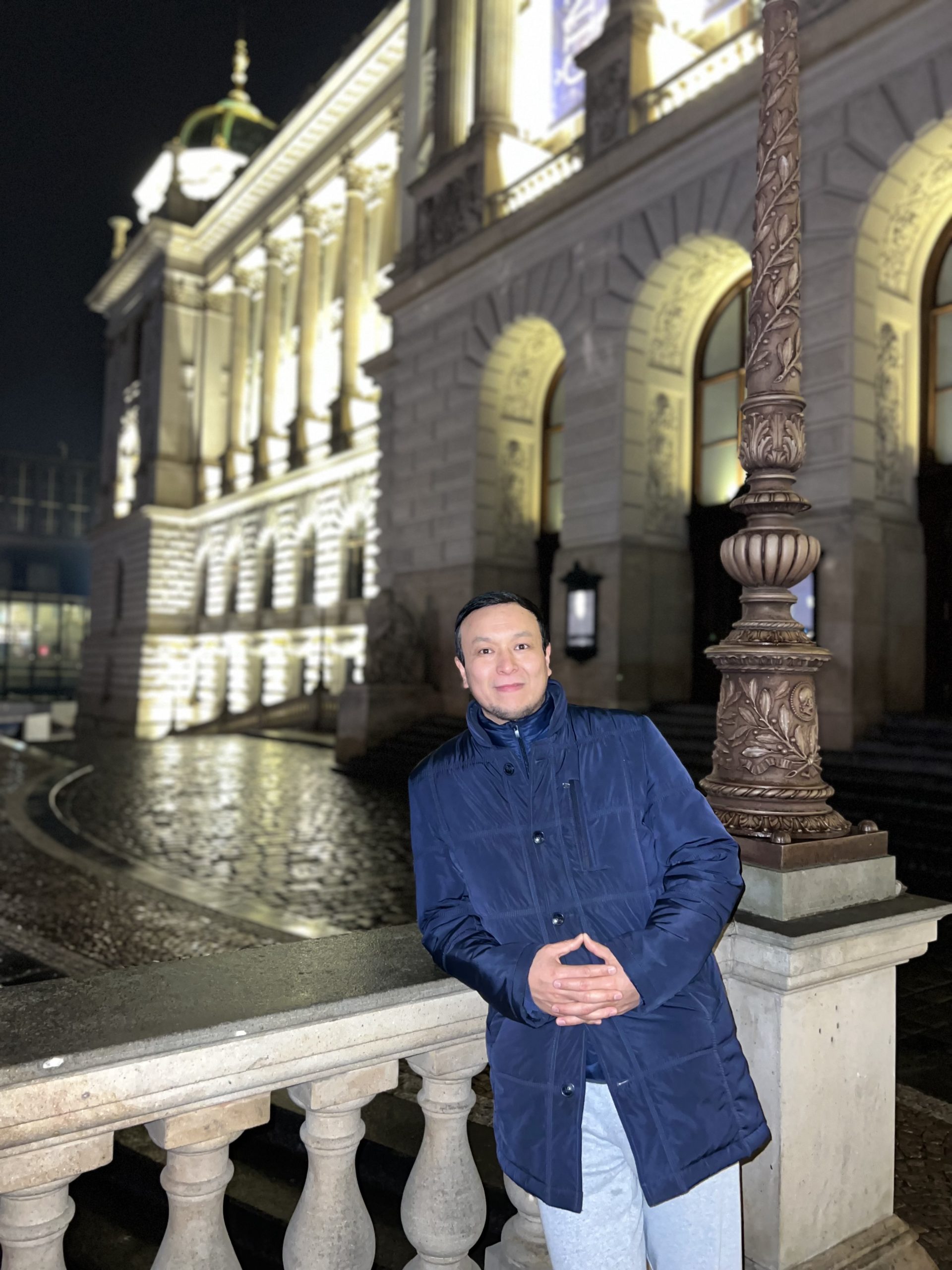
I would like to take this opportunity to express my profound gratitude to the entire team at the Institute of International Studies at Charles University for their comprehensive support and assistance during my business trip. In particular, I extend my sincerest thanks to Associate Professor Slavomir Horak of Charles University and Ms. Anna Jordanova, a PhD student in the Department of Russian and East European Studies, for their invaluable help throughout my stay.
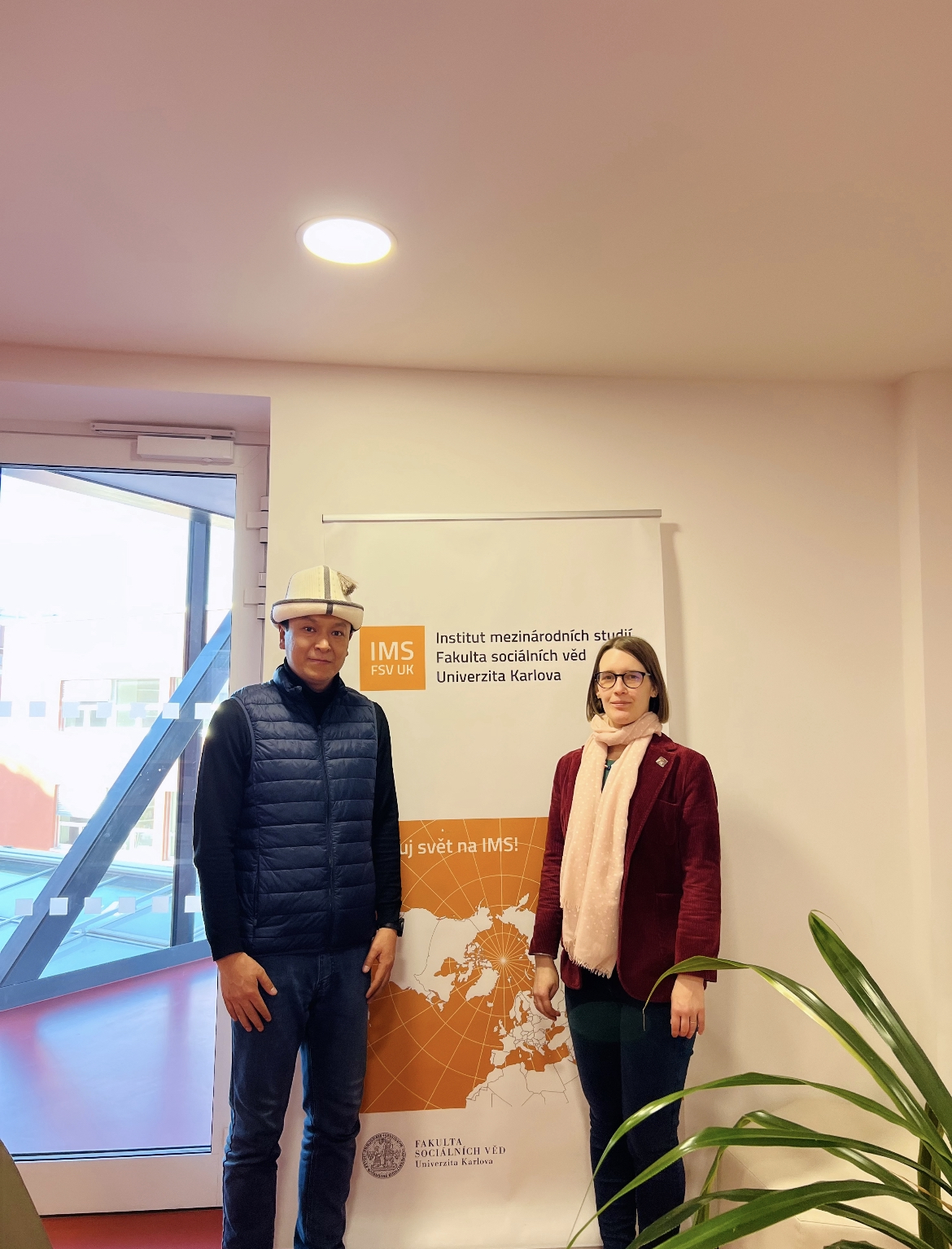
I would also like to extend my profound gratitude to the Department of Sociology of Law at Lund University and the project team for their professionalism and high-level support in successfully organizing this visit under the MOCCA project.
The insights and knowledge gained during this experience will play a crucial role in strengthening Kyrgyzstan’s efforts to combat corruption and improve governance.
